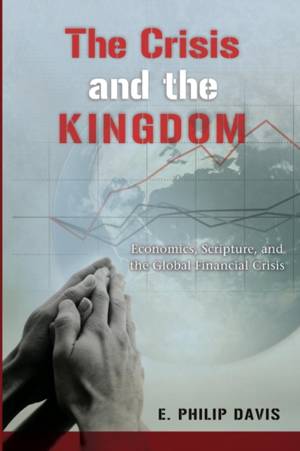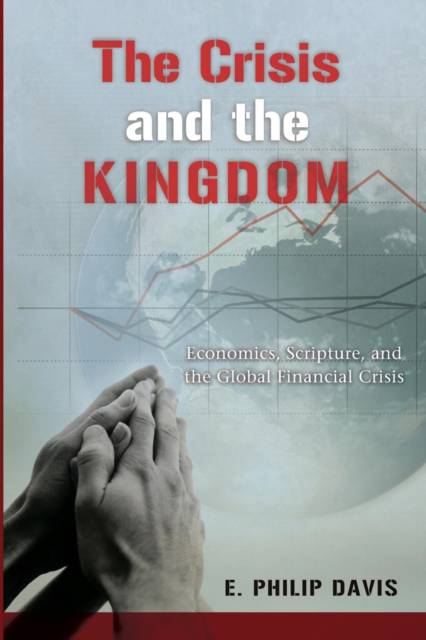
- Afhalen na 1 uur in een winkel met voorraad
- Gratis thuislevering in België vanaf € 30
- Ruim aanbod met 7 miljoen producten
- Afhalen na 1 uur in een winkel met voorraad
- Gratis thuislevering in België vanaf € 30
- Ruim aanbod met 7 miljoen producten
Zoeken
The Crisis and the Kingdom
Economics, Scripture, and the Global Financial Crisis
E Philip Davis
Paperback | Engels
€ 22,45
+ 44 punten
Uitvoering
Omschrijving
The ongoing global financial crisis was not simply the fault of the financial sector. Bankers, households, and governments had all entered a spiral of greed, selfishness, and impatience in pursuit of their respective aims of higher remuneration, greater consumption, and enhanced popularity. The outcome, besides costly bank bailouts, has been rising private and public debt and stagnant economies. Economics, the ruling paradigm in today's society, can explain their motivation of self-interest but not the underlying irrationality of their behavior. Taking a view from Scripture, Philip Davis critiques the overall aims of individuals, as assumed by economics--wealth, consumption, and power--in contrast to Jesus' proclamation of the kingdom of God, the love for God and neighbor, and responsible stewardship of resources. In doing so, he aims to equip Christians to better understand the crisis from a kingdom perspective, to provide the church with a distinctive voice in these troubled times, and to press for radical Christian solutions to address the underlying difficulties. This little book aims to redress the gap in Christians' understanding that led the theologian Jurgen Moltmann to remark trenchantly, "The neglect of economics is a wound in the side of the church."
Specificaties
Betrokkenen
- Auteur(s):
- Uitgeverij:
Inhoud
- Aantal bladzijden:
- 160
- Taal:
- Engels
Eigenschappen
- Productcode (EAN):
- 9781610974769
- Verschijningsdatum:
- 1/01/2012
- Uitvoering:
- Paperback
- Formaat:
- Trade paperback (VS)
- Afmetingen:
- 152 mm x 226 mm
- Gewicht:
- 226 g

Alleen bij Standaard Boekhandel
+ 44 punten op je klantenkaart van Standaard Boekhandel
Beoordelingen
We publiceren alleen reviews die voldoen aan de voorwaarden voor reviews. Bekijk onze voorwaarden voor reviews.











